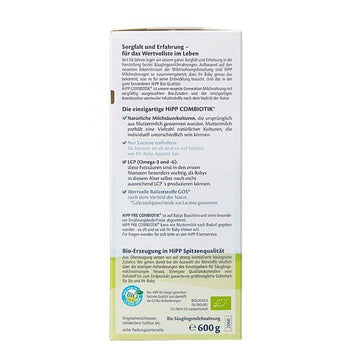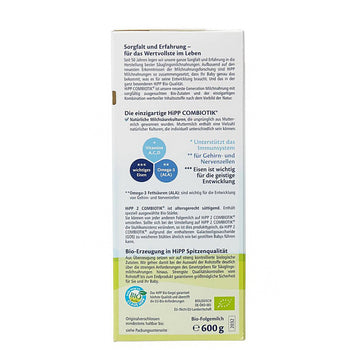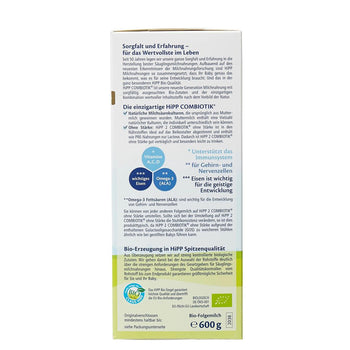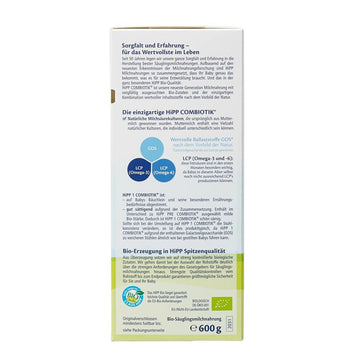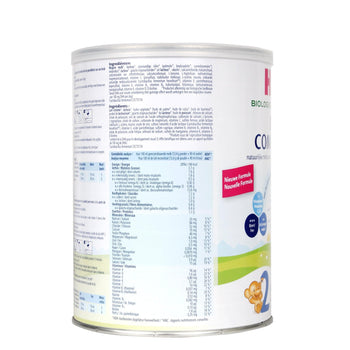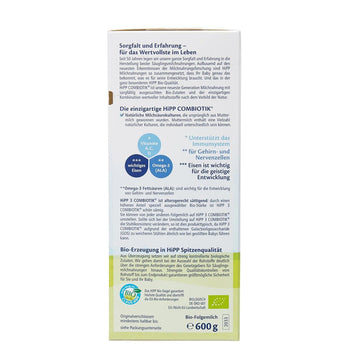Choosing the right infant formula is one of the most important decisions new parents face. With countless options available and conflicting information everywhere, finding the best formula for your baby can feel overwhelming. This comprehensive guide provides evidence-based information focused on European infant formulas to help you make an informed decision that supports your baby's healthy growth and development.
Table of Contents
- Understanding European Infant Formula Basics
- Types of European Infant Formula Available
- Key Nutritional Components to Consider
- Safety Standards and Regulations
- Choosing Based on Your Baby's Needs
- Formula Preparation and Safety
- Premium European Formula Brands Available
- Cost Considerations and Budgeting
- Transitioning Between Formulas
- Working with Healthcare Providers
- Environmental and Sustainability Factors
- Support Resources for New Parents
- Frequently Asked Questions
- Conclusion
Understanding European Infant Formula Basics
What Is Infant Formula?
Infant formula is a manufactured food designed to feed babies from birth through toddlerhood. It serves as a substitute or supplement to breast milk, providing essential nutrients required for proper growth and development. European infant formulas are regulated under some of the strictest standards globally to ensure quality and safety.
Types of European Infant Formula Available
Cow's Milk-Based Formula
The majority of European formulas use modified cow's milk proteins that are easier for babies to digest. These formulas are expertly fortified with vitamins, minerals, and natural nutrients adhering to EU regulations. Brands offering cow's milk formulas include HiPP, Holle, Aptamil, Kendamil, Jovie, Lebenswert, and Töpfer.
Goat's Milk-Based Formula
Several premium European brands offer goat milk options, which feature naturally smaller protein and fat molecules, often making them gentler on sensitive stomachs. Brands with goat milk formulas include HiPP, Holle, Kendamil, Jovie, Nannycare, Kabrita, LittleOak, and PureGoat.
Specialized Formulas
European specialized formulas cater to babies with particular needs, including:
Hydrolyzed (Comfort) Formulas: Proteins are partially broken down to aid digestion and reduce allergenicity (available from HiPP and other brands).
Anti-Reflux Formulas: Thickened naturally to help reduce spit-up and reflux symptoms (HiPP Anti-Reflux).
Key Nutritional Components to Consider
Essential Macronutrients
Modern European infant formulas maintain balanced proportions of protein, carbohydrates (primarily lactose), and fats designed to closely mimic breast milk.
Critical Micronutrients
Iron: Formulas are fortified to prevent iron deficiency anemia, following European nutritional guidelines.
DHA and ARA: Crucial omega-3 fatty acids supporting brain and eye development are standard in European formulas.
Prebiotics and Probiotics: Many contain these to promote healthy digestion and immune function.
Safety Standards and Regulations
European infant formulas adhere to strict regulations requiring manufacturers to follow Good Manufacturing Practices (GMPs), regularly test for contaminants (including heavy metals and bacteria), and comply with EU Organic Certification and other high-level standards such as Demeter biodynamic certification.
Back to topChoosing Based on Your Baby's Needs
Identifying Food Allergies and Sensitivities
Signs your baby may require a specialized formula include persistent fussiness, skin rashes, digestive upset, or poor weight gain.
Age-Specific Considerations
Age Range
Formula Stage & Focus
0-6 Months
Stage 1: Complete nutrition for newborns
6-10 Months
Stage 2: Supporting transition to solids
10+ Months
Stage 3: Advanced nutrition for active toddlers
12+ Months (1 year+)
Stage 4: Continued nutritional support for growing toddlers
Formula Preparation and Safety
Follow the manufacturer's instructions precisely for measurement and mixing.
Use safe water sources—boil tap water if unsure.
The prepared formula must be used within 1 hour at room temperature or stored refrigerated (up to 24 hours).
Store opened powder in a cool, dry place and use within 1 month.
Sterilize bottles and nipples before first use and daily for young or immunocompromised infants.
Premium European Formula Brands Available
Euromallusa distributes the finest selection of European formula brands:
HiPP: Demeter-certified organic with probiotics, prebiotics, comfort, and anti-reflux formulas. Available in both cow's milk and goat milk varieties.
Holle: Biodynamic certified with minimal processing. Offers both cow's milk and goat milk options.
Aptamil: Formulated with patented probiotics and essential fatty acids for complete stage-wise nutrition.
Kendamil: Premium British formula with whole milk fats and natural ingredients.
Jovie: Advanced formulation with high nutrient bioavailability. Available in cow's milk and goat milk varieties.
Nannycare: Premium New Zealand goat milk formula.
Lebenswert: German organic formula with gentle processing.
Kabrita: Dutch goat milk formula with advanced nutrition.
LittleOak: Australian goat milk formula with natural goodness.
Töpfer: German organic formula with biodynamic ingredients.
PureGoat: Pure goat milk nutrition for sensitive babies.
Cost Considerations and Budgeting
European formulas tend to range higher than conventional brands due to organic sourcing and strict quality controls. Parents can manage costs by buying in bulk, using reputable retailer promotions, and consulting healthcare providers for tailored advice.
Back to topTransitioning Between Formulas
Any formula switch should be under a pediatrician's guidance, especially for specialized formulas. Gradually mix the old and new formula over several days to help your baby adapt comfortably.
Back to topWorking with Healthcare Providers
Prepare key questions for your pediatrician, including formula type suitability, signs of intolerance, and brand recommendations. Report immediately any alarming symptoms such as severe vomiting, dehydration, or unusual weight loss.
Back to topEnvironmental and Sustainability Factors
European formulas often feature eco-friendly packaging and sustainable farming certifications. Organic production reduces exposure to synthetic pesticides and chemicals, supporting a healthier planet and baby.
Back to topSupport Resources for New Parents
Join formula feeding support groups on social media.
Utilize pediatrician-endorsed websites and apps for updated information.
Contact the manufacturer's customer service for product-specific guidance.
Frequently Asked Questions
1. How do I know if my baby is getting enough formula?
Monitor weight gain, wet diapers (6-8 per day), and overall contentment between feedings. Regular pediatric check-ups will help track growth.
2. Can I switch between brands?
Yes, but transition gradually over 3–5 days, mixing old and new formulas to avoid digestive upset.
3. Are organic European formulas better?
They adhere to stricter standards on pesticide use and ingredient sourcing, which many parents prefer for peace of mind.
4. Which brands offer goat milk formulas?
HiPP, Holle, Jovie, Nannycare, Kabrita, LittleOak, and PureGoat all offer premium goat milk options.
5. What if my baby has reflux issues?
HiPP Anti-Reflux formula is specifically designed to help reduce spit-up and reflux symptoms. Consult your pediatrician for guidance.
6. What's the difference between formula stages?
Each stage is tailored to your baby's developmental needs: Stage 1 (0-6 months) for complete early nutrition, Stage 2 (6-10 months) for transitioning babies, Stage 3 (10+ months) for active toddlers, and Stage 4 (12+ months) for continued growth support.
Conclusion
Choosing the right European infant formula is about balancing your baby's individual nutritional needs with quality, safety, and sustainability. Euromallusa's comprehensive range of HiPP, Holle, Aptamil, Kendamil, Jovie, Nannycare, Lebenswert, Kabrita, LittleOak, Töpfer, and PureGoat offers trusted, scientifically formulated options to support every stage of your baby's growth confidently and naturally.
Back to top














